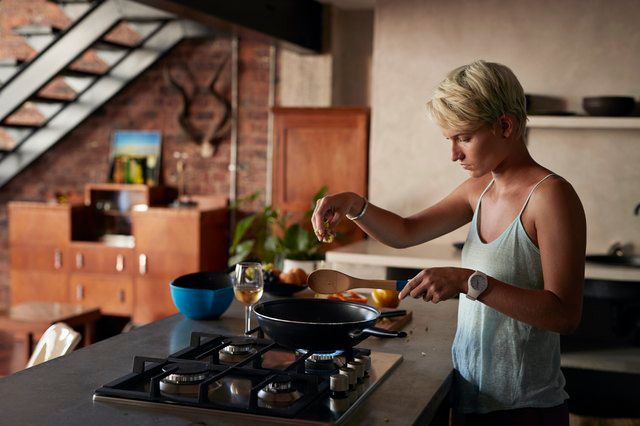Modern society is full of temptations, so it is sometimes challenging even to eat more healthily. It is common to have confusion with the different diet plans being taught and the hectic lifestyles that do no allow time to think about what one is going to eat next. This is where in home dietitians come handy as you get professional dietitian services within the comfort of your home. They do not merely develop diet programs; they equip you to choose proper meals right to your life and health style.
Think about a specialist who knows all the subtleties of nutrition and is ready to assist you when you do not have extra time and/or preferred going out. Whether you are dealing with and treating various illnesses or are just seeking to live a healthier life, the best in-home dietitians balance clinical acumen and human compassion. However, what should you focus on when selecting one among many? Now it is time to discuss what kind of degree and experience makes the best in-home dietitians stand out from the crowd.
Education and Certification Requirements for Dietitians
Nutritionists are responsible for the prevention and promotion, through nutrition, of health. To become one, a person had to offer a bachelor’s degree in dietetics or any related course. This gives a basic understanding of food science besides helping in appreciating the importance of human nutrition.
In addition to acquiring the degree, aspiring dietitians also have to pass supervised practice program that is accredited. This on-job training normally takes between six and twelve months and is very important as it seeks to develop work experience.
After the practical part of the program, a candidate must sit for a national test set by the CDR or another equivalent and recognized competent authority. Passage on this exam awards them the Registered Dietitian Nutritionist (RDN) credential.
Some of the states also have other professional practices that require one to obtain other licenses. Dietitians may also opt to take up additional credentialing when a target market/state/region or sub-specialty wants proof of advanced knowledge such as pediatric nutrition/specialty or sports dietetics. These credentials ensure that the customers receive effective and safe nutritional guidance tailored to their individual requirements.
Specialized Training for In-Home Care
Dietitians working within a client’s home must have extensive education over and above nutrition education. It prepares them to address special issues that are presented when working for individual home clients.
They learn to judge dietary requirements in relation to certain conditions such as Ill health and other activities. It is thus important to know how planning for meals takes into account these factors and how best to organize for them.
Training also encompasses knowledge of measures needed in food safety that one can be able to practice at home. This helps in making sure that besides being healthy meals being eaten they are safe too on the sucker’s system.
However, care must be taken to note that cultural intelligence is also part of their skill base as well. Cultural competence enables dietitians to understand food choices that their clients prefer from cultural consideration to avoid a cultural bias.
This special education allows body dietitians to make proper recommendations that fit the family’s eating plan and practices without overwhelming them or placing so many restrictions on them.
Experience with Various Health Conditions and Dietary Restrictions
Working as a dietitian in clients’ homes means the dietitian comes across a variety of pathophysiology and dietary needs. Every patient is different and comes with something as simple as diabetes to the very complicated gastrointestinal conditions.
The best in home dietitians provide personalized nutrition guidance tailored to individual needs.
Knowledge on such conditions is important. There is no question that dietitians should also have knowledge about how food can rapidly raise or lower blood glucose levels or cause other symptoms such as bloating and discomfort.
Further, most of the clients may possess certain standard related to the type of food they want to consume or the type they do not prefer in any circumstance. When it comes to meals it’s not just about the need to know, it involves the need to be creative.
By working with different population, it becomes easy for them to fine tune them from practical lessons. They get to know what is efficacious for other people by observational practice.
It is equally important to establish rapport because they help to change the client’s eating habits for the better while still obeying their schedules. This paper also reveals that the better in-home dietitians are those who modify strategies with regards to individuals and at the same time, promote supportive atmosphere for transformation.
Communication and Interpersonal Skills
A successful in–home dietitian plays an important role of promoting good communication. Nutrition education becomes easier for clients when they can explain certain ideas and aspects of nutrition in words they understand themselves.
Trust from the clients is very important something that must be developed. Another reason is a regular dietitian, who actively listens to the patient and tries to understand them. Such rapport speeds up the flow of discussion regarding dietary practices and obstacles meeting them.
Another factor is also the interpersonal skills every worker requires while dealing with the members of the family or any of the caregivers. HELP is a model of approach for everyone who is involved in the preparation of the learneds’ meals and understanding of dietary plan goals.
Also, Being friendly and available makes the client free to discuss issues to do with their eating habits, health issues or personal sentiments. It also results in mutual coordination for improved compliance with nutrition plans.
Effective communication does not only subdue the clients but also boosts the outcomes of counseling and cooking methods addresses to clients’ concerns.
Flexibility and Adaptability in Different Home Environments
It is therefore absolutely important to keep an eye on flexibility and flexibility when looking for the most outstanding in home dietitians to hire. Every home is different; which means it has its own problems and what would work in one scenario might not work in another. Dietitians or persons preparing such should be able to factor in the specific situation and emanate from it.
Some of the clients might live in a small house with many people who need to be fed differently while others might have health conditions that compel them to take certain types of foods only. A skilled dietitian should be able to bluff through all these differences.
Further, they indicate that clients’ knowledge of nutrition concepts requires matching of the communication approach. That is why it is essential to pay more attention to the possibility of an individual’s interlocutor and adapt to him In any case, it is better to perform specific actions with people with whom it does not rely familiarly either children or elderly people.
The versatility allows ensuring that customers get support that is unique to their situation. It generates not only more suitable compliance but also an overall positive experience.
Selecting somebody who demonstrates this degree of flexibility can go a long way toward improving your road to improving home eating habits. They establish a relationship that feels like collaboration rather than as constraining—one of the real ingredients for sustainability.












